October 2019 national eResearch newsletter
Welcome to the October 2019 AeRO eResearch Newsletter
Message from the AeRO CEO
I hope to see many of you at eResearch Australasia next week! See https://conference.eresearch.edu.au/.
The hallway track is my favourite part as I can chat to hundreds of experts across so many domains. Unfortunately time is limited and not everyone can attend so I’m glad we can take the discussion online at https://chat.aero.edu.au. The AeRO team will be active providing updates and posting a few questions at the start of the conference but I encourage everyone to jump in with their own questions. We even have prizes for the best – relevant – question and answer of the week.
Sam Moskwa, AeRO CEO.
 |
Supercomputing MOOC: from 14-Oct
This free 5-week online course will introduce you to what supercomputers are, how they are used and how we can exploit their full computational potential to make scientific breakthroughs. It was developed by EPCC at the University of Edinburgh and by SURFsara as part of the EC-funded PRACE project.
Register for the upcoming run on 14th October at www.futurelearn.com/courses/supercomputing/.
The FutureLearn platform has a paid “Upgrade” option that gives you access to the material for an extended period and the ability to obtain a Certificate of Achievement based on online tests. However, all other parts of the MOOC can be accessed for free during its run. |
 |
BioCommons Data Movement SurveyCalling all life science researchers who move data!
The Australian BioCommons is a new NCRIS-funded digital capability that will enhance national bioinformatics infrastructure for environmental, agricultural and biomedical researchers. We want to know about your research data movement challenges.
Please help inform us so that we can improve bioinformatics infrastructure and resources nationally by completing our 10 minute survey on data movement.
Survey here: https://forms.gle/35RsqUYi1jnMxp9W9 |
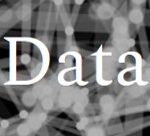 |
Review of Research Data Australia Service: 22-Oct
Tue 22 Oct, 14:20 – 15:40 AEST, Brisbane
We would like your input, as data providers and data repository operators, for how Research Data Australia fits in future data publishing and discovery ecosystems. If you are attending the 2019 eResearch Australasia Conference come along to the oral presentation “Future directions in data discovery” (https://conference.eresearch.edu.au/wp-content/uploads/2019/08/2019_eResearch_57_Future-Directions-in-Data-Discovery.pdf) and BoF session “Data discovery: past and way ahead” (https://conference.eresearch.edu.au/wp-content/uploads/2019/08/DataDiscoveryBoF-final.pdf) to give us your input.
|
 |
Diversity and Inclusion Workshop: 28-Oct
Pawsey Supercomputing Centre is pleased to advise that Toni Collis, who is the Chair and Co-Founder of Women in High Performance Computing, and CEO of Collis-Holmes Innovations, will be at the Centre to run a 3-hour interactive Diversity & Inclusivity workshop. Building and sustaining diversity is a challenge that requires capability development, a change of mindset and effective processes.
Part of this journey is the opportunity to reflect on present interventions and possible initiatives that might work best to promote inclusivity in your organisation.
Further information and registrations details can be found here: https://pawsey.org.au/event/diversity-and-inclusion-workshop/. |
 |
CUDA Advanced Workshop: 31-OctNVIDIA will be at the Pawsey Supercomputing Centre on Thursday 31st October for a one day hands-on CUDA Advanced Workshop.
Further information and registration can be found here: https://pawsey.org.au/event/cuda-advanced-workshop/. |
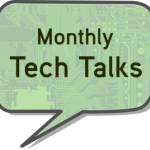 |
TechTalk: None in NovemberTechTalks are national briefings provided by people working in the eResearch community, with the aim of helping broaden our understanding of the work that is being done. They are held at various locations around Australia (using Zoom videoconferencing). Usually on the first Friday in the month.
In view of the proximity of the eResearch Australasia Conference, the TechTalk scheduled for November has been cancelled. Next one is scheduled for Friday, 6-Dec-19.
Details of Tech Talks (past and future) can be seen at https://www.meetup.com/monthlytechtalk/. |
 |
Accelerating Child Health Research: A Systems Biology Symposium: 11 to 13-NovThe integration of multi-omics approaches with clinical research will be, without doubt, a cornerstone of future innovation in medical practice.
The Respiratory Research Centre, in collaboration with the Centre for Personalised Medicine for Children at the Telethon Kids Institute, is organising this event. High-calibre international experts in systems biology, network analysis, and data visualisation will come together to share their knowledge and ideas, creating opportunities to discuss cutting-edge technologies and provide inspiration and opportunity for potential new local and international collaborations.
Further information and registration details can be found here: https://www.telethonkids.org.au/news–events/news-and-events-nav/2019/november/accelerating-child-health-research/. |
 |
Nextflow Workshop and Hackathon at Pawsey: 11 to 14-NovIn recent years, biosciences, radioastronomy and other data intensive domains have seen an increased need for portability, reproducibility and scalability of analysis protocols. Addressing this need are scientific workflow systems such as Nextflow.
Pawsey’s 4-day workshop and hackathon teaches you how to use NextFlow and then supports you as you apply that learning to your own workflow.
Run by Nextflow main developers, Paolo Di Tommaso and Evan Floden, the hands-on workshop will teach you how to apply Nextflow to a pipeline of your choice, ready to increase your research output.
More information and registration here: https://pawsey.org.au/event/eoi-for-nextflow-workshop-at-pawsey/. |
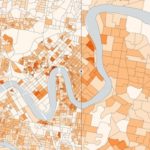 |
Census: Worth its Weight in DataAn independent report from Lateral Economics, conducted on behalf of the ABS, has determined the value of the Census to the nation as whole: for each $1 spent by the Census, $6 is generated for the Australian economy, or around $4.1 Billion total in the next 5 years. See https://lateraleconomics.com.au/output/valuing-the-australian-census/.
In the report, Valuing the Australian Census, the AURIN Workbench (https://aurin.org.au/resources/workbench/) was identified as a major platform through which Australian researchers accessed ABS Census data. Unsurprisingly most data downloads from the AURIN Workbench – a staggering 49,000+ data downloads – have been AURIN Census data, with over 100 academic studies conducted. |
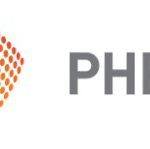 |
Australia’s Data Future Symposium: 21-Nov21 Nov, 12:30 – 17:00 AEDT, Sydney Opera House.
To celebrate its ten year anniversary, the Population Health Research Network (PHRN) has brought together six speakers to address the important issues surrounding the future of Australia’s publicly funded data. The themes for the afternoon are impact, trust and innovation in the use of Australia’s publicly funded data. Register here: https://www.sydneyoperahouse.com/events/whats-on/ideas-and-talks/2019/australias-data-future-symposium.html. |
 |
Pawsey Perth Training: 26 to 27-NovPawsey Training is designed to assist researchers to maximise the benefit of using the supercomputers and to explain the possibilities and applications of these powerful tools, to anyone with an interest in them.
In November, Pawsey will be running supercomputing, cloud and unix training in Perth.
For more information and to register please visit this page: https://pawsey.org.au/event/pawsey-training-perth-26-27-november-2019/. |
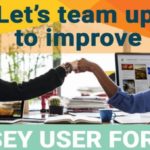 |
Pawsey Sydney User Forum: 27-Nov
Pawsey staff is taking the opportunity to discuss your experiences using Pawsey services. We want to hear from you to find out what we are doing well and where we can improve. Do not wait until the end of year survey, join us to have your say!
Your feedback can cover all aspects of interactions with the Pawsey Supercomputing Centre. This may include the full project lifecycle of application, allocation management, usage, and reporting for the various supercomputing, data, cloud and visualisation systems that Pawsey operates. This is also your chance to help us shape the future of HPC for Australia’s researchers.
Visit this page to register: https://pawsey.org.au/event/pawsey-user-forum-sydney-27th-november-2019/. |
 |
Pawsey Sydney Training: 27 to 28-Nov
Pawsey Training is designed to assist researchers to maximise the benefit of using the supercomputers and to explain the possibilities and applications of these powerful tools, to anyone with an interest in them.
In November, Pawsey will be running supercomputing, cloud and unix training in Sydney.
For more information and to register, visit this page: https://pawsey.org.au/event/pawsey-training-sydney-27-28-november-2019/. |
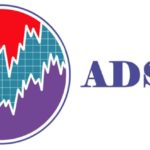 |
Perth STEM Teacher Workshop: 9-Dec
The Australian Data Science Education Institute (ADSEI) is running a free STEM Education Teacher Professional Development Day with the generous support of Google Australia and Pawsey Supercomputing Centre. The workshop will be hosted by the Pawsey Supercomputing Centre on December 9th from 9am-3pm.
The workshop will teach teachers how to use real projects to empower students to create change in their communities, at the same time as covering the curriculum and building links to other subjects.
For further information and to register, please visit this page: https://pawsey.org.au/event/perth-stem-teacher-workshop/. |
 |
PASC20 Call for Papers: 15-Dec
The Platform for Advanced Scientific Computing (PASC) invites research paper submissions for PASC20, co-sponsored by the Association for Computing Machinery (ACM) and SIGHPC, which will be held at the University of Geneva, Switzerland, from June 29 to July 1, 2020.
PASC20 is the seventh edition of the PASC Conference series, an international platform for the exchange of competences in scientific computing and computational science, with a strong focus on methods, tools, algorithms, application challenges, and novel techniques and usage of high performance computing.
Rolling deadlines for new submissions: Dec 15, 2019 (final deadline). Call for papers https://www.pasc-conference.org/call-for-papers/. |
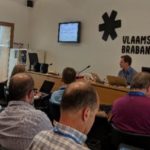 |
CeRDI Participates at Open Geospatial Consortium
Federation University’s Centre for eResearch and Digital Innovation (CeRDI) recently participated in the 111th Technical Meeting of the Open Geospatial Consortium (OGC) in Belgium. This important event advanced international standards and services to promote international geospatial interoperability. CeRDI’s membership in OCG is one of a few non-government organisations to co-develop and implement OGC standards for interoperability, and to federate data from disparate sources, for real-world applications.
CeRDI is a leading contributor to soil data interoperability, collaborating with Menaake Whenua Landcare Research NZ, US Geological Survey, Natural Resources Canada, French Geological Survey (BRGM) and others. For more information about this, see |
 |
ANZLIC/ICSM Metadata Working Group
On the 13th June 2018, the Australian and New Zealand Metadata Working Group (MDWG) was re-established by request of ANZLIC and Intergovernmental Committee on Surveying and Mapping (ICSM).
The MDWG is a network of 36 organisations, representing the government, research and academia. It supports a wider understanding and consistent application of location information metadata, based on agreed standards.
Current work includes development of the Good Practices for the ISO 19115-1 based metadata, recommendations on metadata for services, and GDA2020.
For further enquiries and participation contact icsm@ga.gov.au.
For more information on MDWG visit https://www.icsm.gov.au/what-we-do/metadata-working-group. |
 |
Ted Talk, Dr Laura Boykin
Dr Laura Boykin is a TED Senior Fellow, Gifted Citizen and computational biologist who uses genomics and supercomputing to help smallholder farmers in sub-Saharan Africa control whiteflies and viruses, which cause devastation to the local cassava crops. Cassava is a staple food that feeds more than 800 million people globally.
Recently, she founded The Cassava Virus Action Project along with collaborators in east Africa to roll out portable DNA sequencing and analyses to farmers in the region, with the aim of tackling future insect and viral outbreaks.
You can see the Ted Talk here: https://www.ted.com/talks/laura_boykin_how_we_re_using_dna_tech_to_help_farmers_fight_crop_diseases/. |
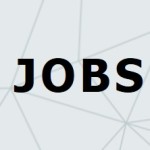 |
eResearch Jobs
AeRO provides details of the latest eResearch job opportunities in the sector. Jobs are posted immediately to https://twitter.com/AeRO_eResearch, and the website at http://aero.edu.au/jobs/ is also updated. This is a free service for the whole eResearch community – to advertise a position, simply email loretta@aero.edu.au. Here’s a sample of current vacancies: Enterprise Data Warehouse Manager, eResearch Platform and Services Engineer, Visualisation Technology Specialist, Research Data Librarian, Supercomputing Applications Specialist, Cybersecurity Program Director, Senior Linux Systems Administrator, Bioinformatics and IT Manager, Big Data Cloud Logging Engineer, STEM Policy Analysts, Multiple eResearch Analyst Positions. |
Contributions
This newsletter is based on contributions provided by members of the eResearch community, and draws on news articles and newsletters published across the sector. The Newsletter is published around the 16th of each month.
Please send any contributions (max. 100 words, plus a link and image) or pointers to any other relevant articles or newsletters to editor@aero.edu.au
Archives of these Newsletters are held at http://aero.edu.au/newsletters/.
Click HERE to add yourself to the eResearch Mailing List.
Thanks,
—AeRO Newsletter Editor

